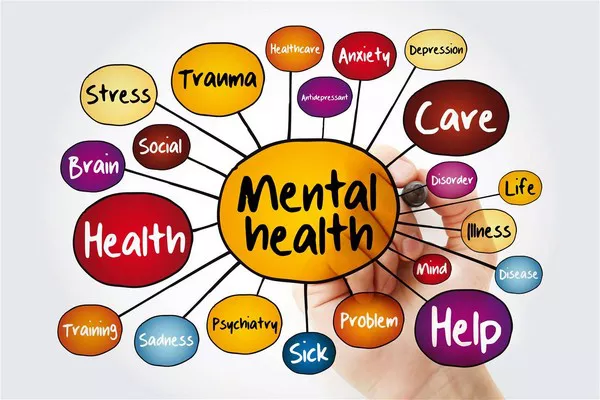Sleep and anxiety are two intertwined aspects of our lives that significantly impact our well-being. The delicate balance between them can play a pivotal role in our physical and mental health. As we navigate the complexities of modern living, understanding the connection between sleep and anxiety becomes crucial for maintaining a healthy lifestyle. In this article, we will delve into the intricate relationship between sleep and anxiety, examining how one affects the other and providing practical strategies to improve both aspects of our lives.
1. The Fundamental Role of Sleep
Importance of Quality Sleep
Sleep is an essential physiological process that enables our bodies and minds to rest, recover, and rejuvenate. Quality sleep is linked to cognitive function, emotional well-being, and overall physical health.
Sleep Cycles
The sleep cycle consists of different stages, including REM (Rapid Eye Movement) and non-REM sleep, each serving distinct functions for our body and brain.
2. Understanding Anxiety
The Nature of Anxiety
Anxiety is a natural response to stress and potential threats, often characterized by feelings of unease, worry, and tension. While occasional anxiety is normal, chronic anxiety can have adverse effects on our mental and physical health.
Anxiety Disorders
Anxiety disorders, such as generalized anxiety disorder, social anxiety disorder, and panic disorder, involve excessive and persistent feelings of anxiety that interfere with daily functioning.
3. The Bidirectional Relationship
Anxiety’s Impact on Sleep
Anxiety can disrupt sleep patterns, leading to difficulty falling asleep, staying asleep, or experiencing restful sleep. Racing thoughts and increased physiological arousal contribute to sleep difficulties in individuals with anxiety.
Sleep’s Influence on Anxiety
Inadequate sleep or poor sleep quality can exacerbate anxiety symptoms. Sleep deprivation can lower the threshold for experiencing anxiety and intensify feelings of stress.
4. Factors Linking Sleep and Anxiety
Neurotransmitters
Neurotransmitters like serotonin and GABA (gamma-aminobutyric acid) play a role in regulating both sleep and anxiety. Imbalances in these neurotransmitters can contribute to sleep disturbances and anxiety disorders.
Hypothalamic-Pituitary-Adrenal (HPA) Axis
The HPA axis, responsible for regulating stress response, is closely connected to both anxiety and sleep. Dysregulation of this axis can lead to disrupted sleep patterns and heightened anxiety.
5. Strategies to Improve Sleep and Manage Anxiety
Establish a Consistent Sleep Routine
Creating a regular sleep schedule helps regulate your body’s internal clock, promoting better sleep quality and overall well-being.
Practice Relaxation Techniques
Engaging in relaxation techniques such as deep breathing, progressive muscle relaxation, and meditation can help alleviate anxiety symptoms and promote restful sleep.
Limit Screen Time Before Bed
Exposure to blue light from electronic devices before bedtime can suppress melatonin production and disrupt sleep. Limiting screen time at least an hour before sleep can improve sleep quality.
Cognitive-Behavioral Therapy (CBT)
CBT is a therapeutic approach that addresses negative thought patterns and behaviors associated with both anxiety and sleep problems. It can provide effective tools for managing both aspects.
Physical Activity
Regular physical activity has been shown to improve sleep quality and reduce anxiety. Engaging in exercise during the day can positively impact your sleep and overall mood.
6. Seeking Professional Help
Consult a Healthcare Professional
If anxiety and sleep disturbances significantly affect your daily life, seeking guidance from a healthcare professional is essential. They can provide personalized recommendations and interventions.
Therapy and Medication
Therapeutic interventions, such as cognitive-behavioral therapy (CBT) or medications, may be recommended by a healthcare provider to address both anxiety and sleep issues.
7. Data and Research
Sleep Duration and Anxiety
Research studies have found that both short sleep duration and poor sleep quality are associated with increased risk for anxiety disorders.
Anxiety and Insomnia
A bidirectional relationship between anxiety and insomnia has been well-documented in research, highlighting the need for integrated treatment approaches.
Conclusion
In conclusion, the connection between sleep and anxiety is a complex interplay that impacts our overall well-being. Understanding how anxiety can disrupt sleep patterns and how insufficient sleep can intensify anxiety is crucial for maintaining a healthy balance. By implementing strategies to improve sleep quality and manage anxiety, individuals can enhance their mental and physical health. Seeking professional help when needed ensures that comprehensive and effective approaches are taken to address both aspects. As we strive for optimal well-being, acknowledging the intricate relationship between sleep and anxiety empowers us to make informed decisions that positively impact our lives.

